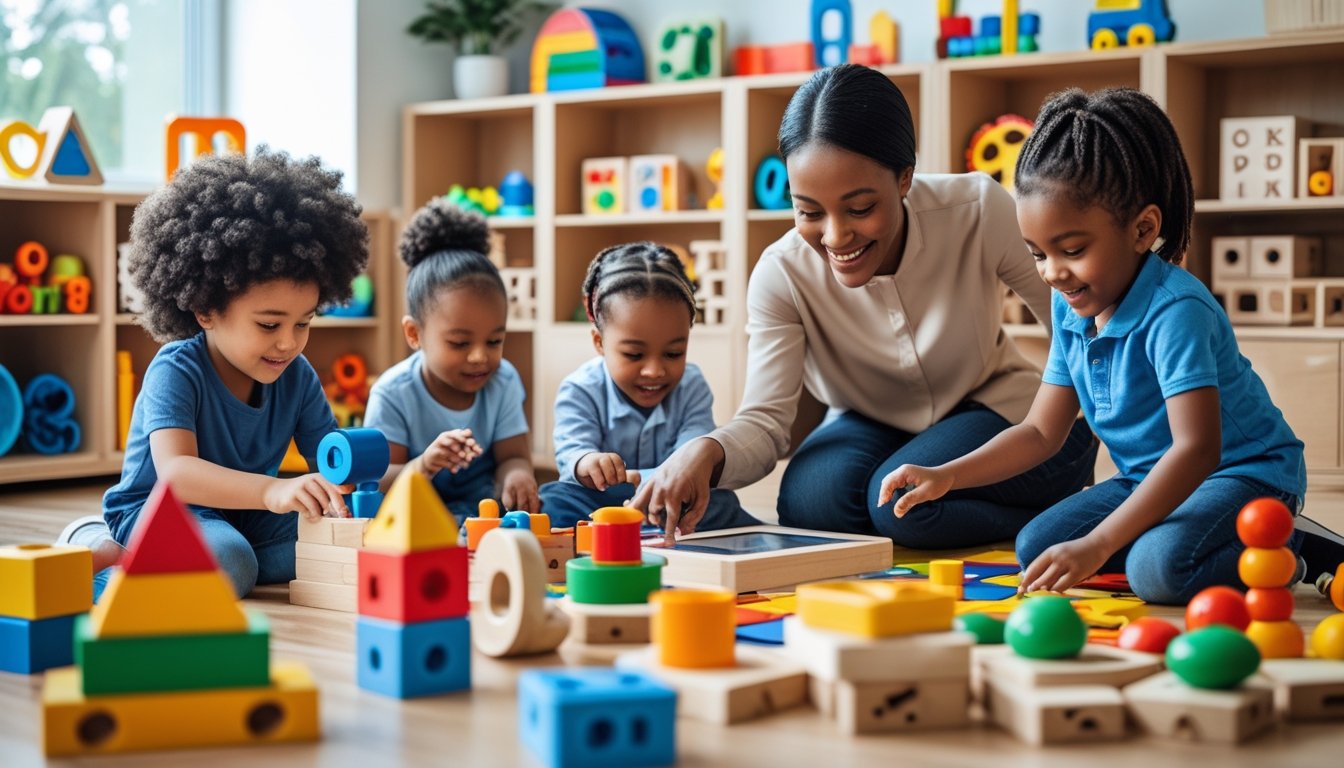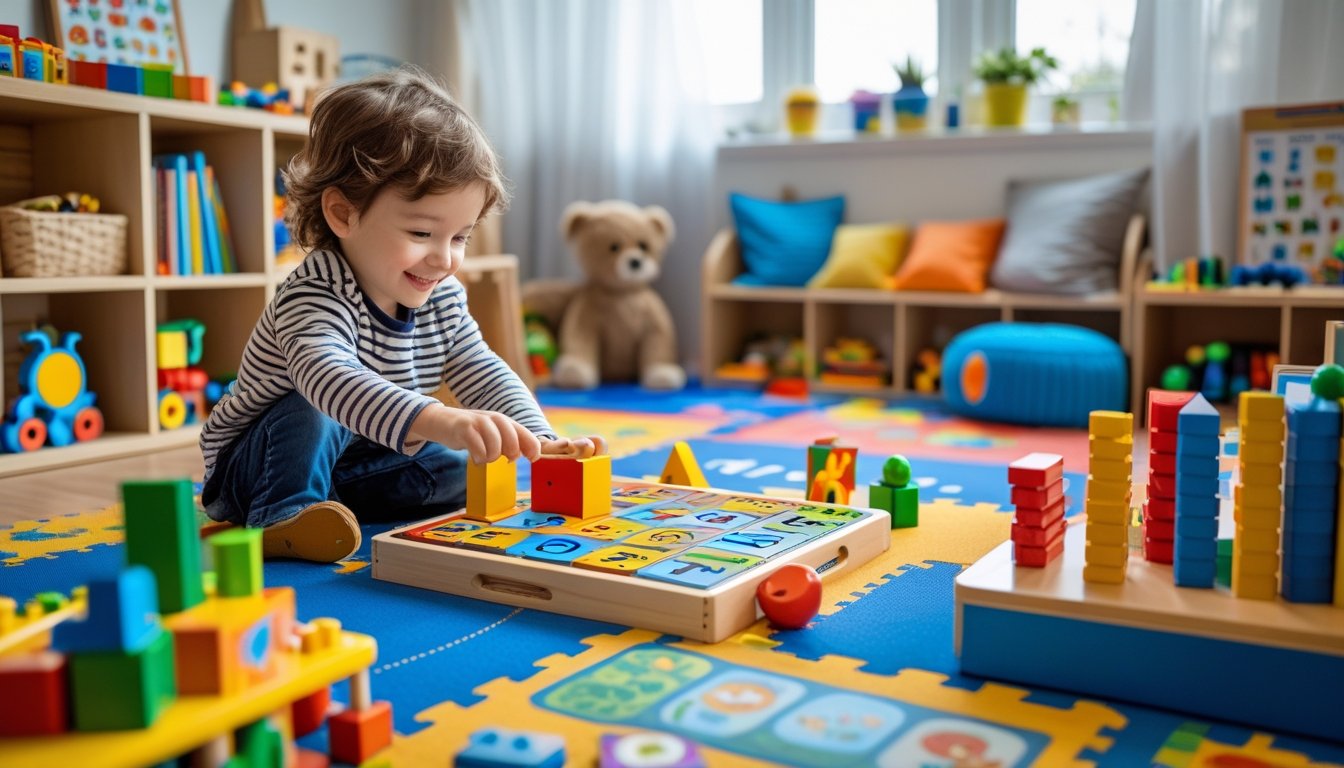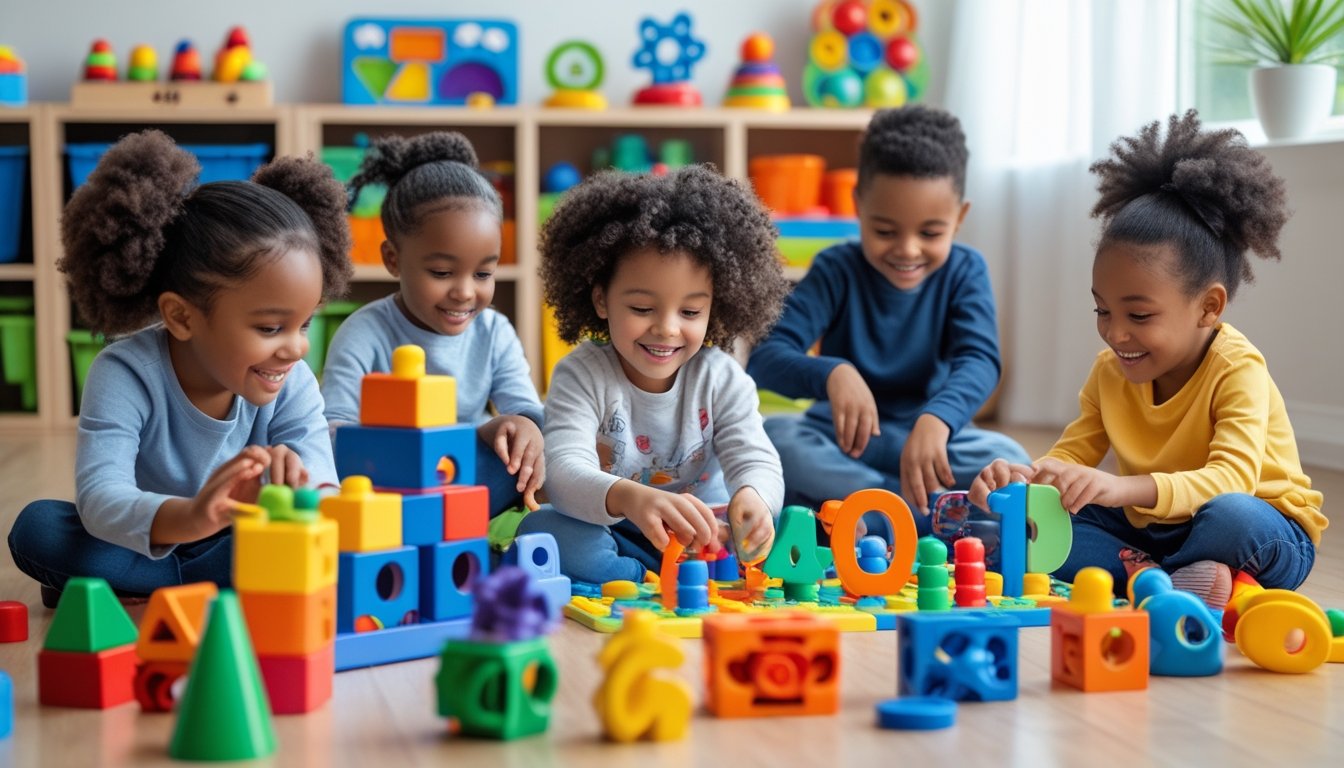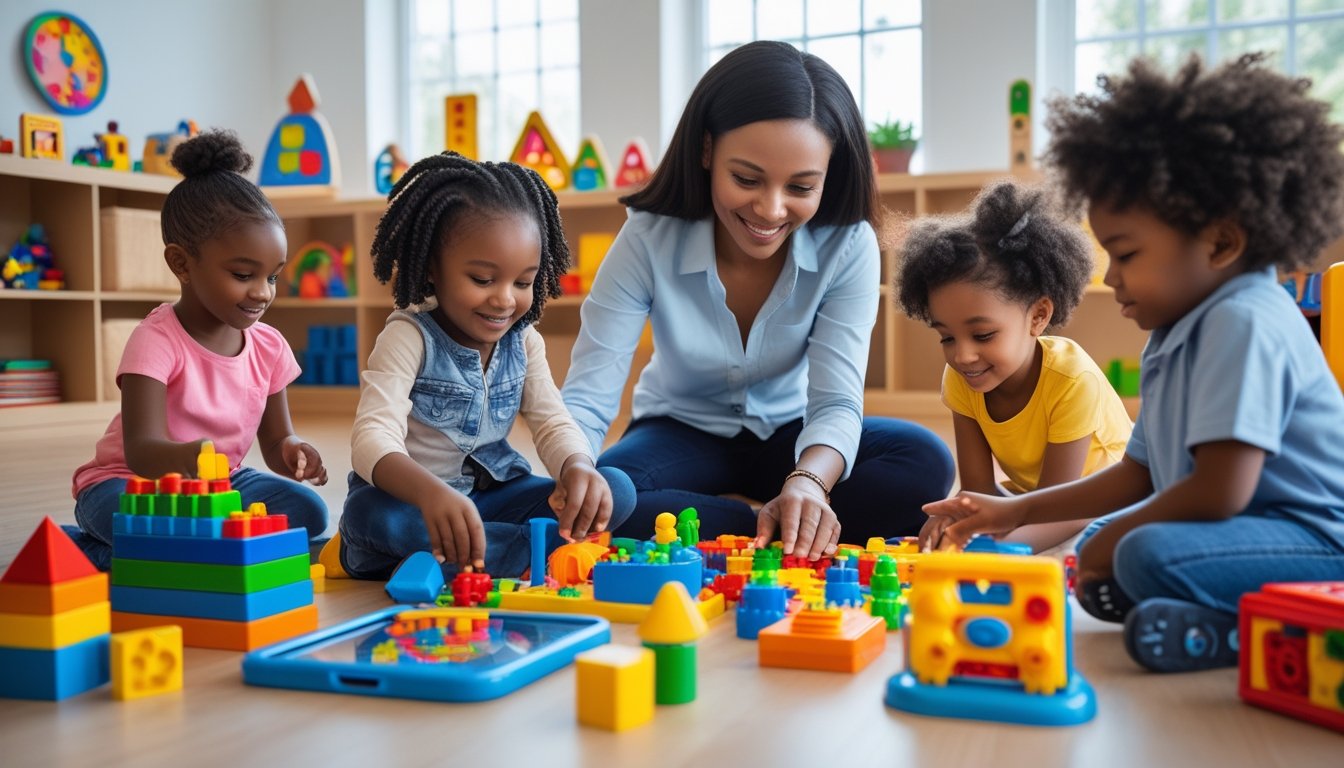Late updated: 27 Aug 2025 13:08
Written by:
How To Choose The Right Educational Toys For Children: A Comprehensive Guide
Selecting educational toys that capture a child's imagination while supporting their development can be a rewarding yet daunting task for many parents. With countless options available, ensuring that a toy is both entertaining and beneficial can seem overwhelming. The key to choosing the right educational toys is to focus on age-appropriateness, developmental benefits, and safety. By carefully considering these factors, we can make choices that not only entertain but also foster growth, curiosity, and learning in our children.

Educational toys play a vital role in the cognitive, social, and emotional growth of children. From improving problem-solving skills to enhancing creativity, these toys are integral in building a solid foundation for lifelong learning. We must consider a child's unique interests and abilities when selecting toys, ensuring that they remain engaged and encouraged to explore new concepts while having fun.
Parental involvement also enriches the learning experience. Engaging in play with our children strengthens family bonds and demonstrates that learning can be a collaborative and enjoyable process. When we take the time to understand what stimulates and excites our children, we empower them to embark on a fulfilling learning journey.
Key Takeaways
- Consider age, development, and safety in toy selection.
- Balance entertainment with educational value.
- Involvement in play enhances learning and family bonds.
Key Factors in Choosing the Right Educational Toys for Children

Selecting educational toys involves understanding educational benefits, matching toys to a child's developmental stage, ensuring safety and quality, and aligning toys with their personal interests. These considerations are essential to maximise the developmental impact of play.
Understanding Educational Value
Educational value in toys is pivotal to a child's growth. When we consider educational toys, it's essential to evaluate how they contribute to cognitive, emotional, or physical development. Toys like puzzles and building blocks can promote problem-solving skills and spatial awareness.
Learning through play allows children to explore new concepts naturally. Toys that encourage imaginative play, such as role-playing kits, foster creativity while developing social skills. We should prioritise toys that offer multipurpose functions and diverse learning opportunities. This approach ensures a well-rounded development.
Matching Toys to Developmental Stages
Each developmental stage requires a different set of skills and interests. We must choose toys that align with a child's current abilities. In early infancy, sensory toys that stimulate sight, sound, and touch are beneficial.
As children grow, toys should adapt to support increased autonomy and motor skills. For toddlers, stacking toys or simple musical instruments can be engaging. In contrast, preschool children may require educational toys that challenge their problem-solving abilities, like basic science kits or art sets. Understanding a child’s developmental stage ensures we provide toys that both engage and educate effectively.
Prioritising Safety and Quality Standards
Safety and quality cannot be overlooked in any toy selection. We must verify that toys meet strict safety guidelines, such as those provided by the NAEYC. High-quality toys should be durable and free from hazardous materials.
It's crucial to inspect toys for small parts that might pose choking hazards, particularly for younger children. We should also ensure that toys are easy to clean and maintain. By prioritising safety and adhering to quality standards, we protect children while enhancing their learning experiences.
Aligning Toys with Children’s Interests
Children are more engaged when their toys resonate with their interests. We can encourage a love for learning by selecting toys that align with their hobbies and passion areas. If a child enjoys nature, educational toys like a bug-catching kit or a domesticated plant care set can enhance their interest.
Similarly, book sets that cater to specific interests can build literacy skills while keeping them enthusiastic about learning. By tracking individual preferences, we create opportunities for children to discover and nurture their unique talents through playful exploration. This alignment ensures a fun and rewarding learning experience.
Essential Types of Educational Toys and Their Developmental Benefits

Educational toys play a significant role in enhancing various developmental aspects of a child's growth. Understanding how each type of toy nurtures specific skills is key to choosing the right ones.
Toys for Cognitive and Problem-Solving Skills
Toys that improve cognitive development include puzzles and building blocks. Puzzles challenge children to recognise patterns and think critically. They must figure out how pieces fit together, enhancing their problem-solving abilities. Building blocks, such as LEGO, teach children about spatial awareness and planning.
Experiment kits and science kits encourage inquisitiveness through hands-on learning. These activities require children to hypothesise and test, which fosters analytical thinking. Board games also cultivate strategic planning and boost critical thinking as children learn to anticipate and respond to their opponents' moves.
Promoting Motor Skills and Physical Development
Motor skills can be divided into fine and gross categories. Fine motor skills are strengthened by craft sets, which involve detailed hand movements for tasks like cutting and painting. Manipulating small building blocks also supports this development.
Gross motor skills, on the other hand, benefit from toys that encourage physical movement. Items such as balance bikes, skipping ropes, and sports equipment help in building coordination and strength. Movement-based toys encourage physical activity, crucial for healthy growth.
Encouraging Creativity and Imagination
Creativity flourishes through open-ended toys that do not limit possibilities. Items like art supplies and craft sets allow children to explore their artistic side.
Pretend play sets, including pretend food and miniature houses, stimulate imaginative play. These toys enable children to invent scenarios and characters, which enhances creativity. Role-playing fosters storytelling skills as children weave narratives around their play, sparking their imaginative faculties.
Facilitating Social and Language Skills
Toys that promote collaborative play are essential for developing social skills. Board games, especially those designed for multiple players, require teamwork and turn-taking. These interactions help children learn about sharing and cooperation.
Language skills are honed through toys like storytelling kits and books, which introduce children to new vocabulary. Pretend play encourages children to converse, helping them articulate thoughts and ideas. Social dialogues during play enhance communication skills.
Frequently Asked Questions

Choosing the right educational toys involves considering developmental benefits, age-appropriateness, and safety. Different toys stimulate various skills, contributing uniquely to a child's growth. Let's explore these aspects in detail below.
What are the guidelines for choosing developmentally appropriate toys for children aged 3 to 5 years?
For children between 3 to 5 years old, toys should encourage imagination, problem-solving, and social skills. Consider building blocks, simple board games, and creative art supplies. These options help stimulate cognitive functions and encourage cooperative play with peers.
How can toys influence brain development in toddlers between 1 and 2 years of age?
Toys for toddlers aged 1 to 2 years can significantly impact motor skills and basic cognitive development. Look for simple puzzles, stacking toys, and musical instruments. These items can enhance hand-eye coordination and promote sensory exploration.
Which factors should be considered when selecting educational toys for babies 6 to 12 months old?
When choosing toys for babies 6 to 12 months old, focus on safety, sensory stimulation, and motor skill development. Soft, brightly coloured toys that produce sounds, like rattles, can maintain engagement and support sensory processing. Always ensure toys are free from small parts and are made from non-toxic materials.
What types of toys are considered suitable for children ages 2 to 3 years for optimal development?
Optimal toys for children aged 2 to 3 years should focus on interactive play that fosters language and motor skills. Consider playsets, picture books, and basic musical instruments. These toys help develop fine motor abilities and encourage verbal communication through storytelling and play.
Can you recommend some educational toys that would be appropriate for a 5-year-old child?
For a 5-year-old, educational toys should inspire creativity and critical thinking. Consider arts and crafts kits, beginner science sets, and age-appropriate construction toys. Such toys support independent exploration and foundational knowledge-building in subjects like science and art.
How do different types of toys affect the development of various age groups in children?
Different toys target distinct developmental stages and skills. While tactile toys foster sensory exploration in infants, educational games may boost cognitive development in preschoolers. It is crucial to match toys to the child's developmental stage to maximise learning and enjoyment. This tailored approach ensures comprehensive growth across emotional, physical, and intellectual domains.
